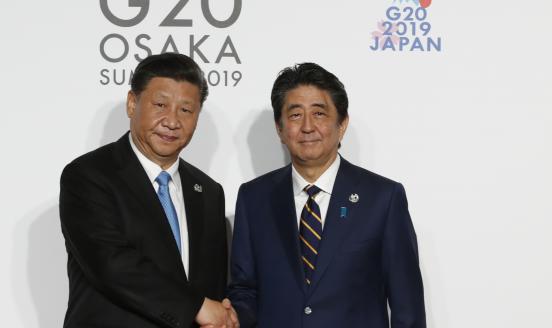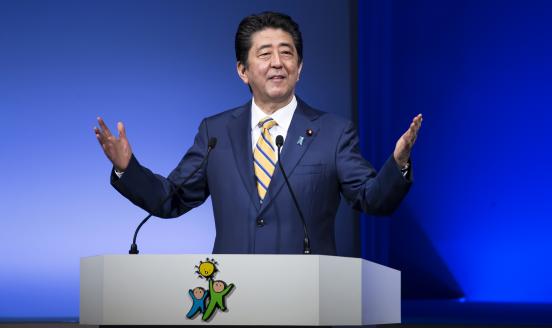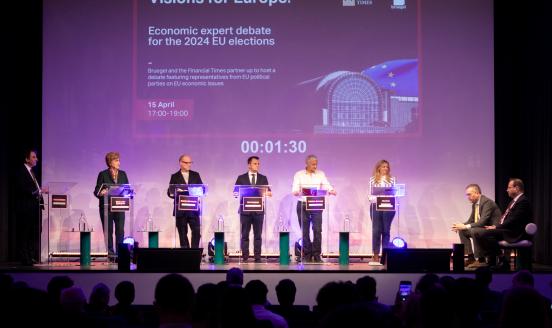Backstage: Implications of the new EU-Japan trade deal
Bruegel senior fellow André Sapir welcomes Tamotsu Nakamura, dean of Kobe University’s Graduate School of Economics, and Maria Åsenius, head of cabine
The EU and Japan have signed a landmark trade deal this summer that will create the world’s largest open economic area.
The economic partnership agreement will be the biggest bilateral trade agreement the EU has ever signed, permitting not only the dropping of tariffs but also regulatory cooperation, as well as a special focus to promote the interests of SMEs.
The trade-positive nature of this agreement goes against the grain of the numerous challenges made to the global multilateral system in recent times, best represented by the tariffs and counter-tariffs imposed by the US and China upon one another.
To explore how this accord suits the EU and Japan, in terms of both the domestic and international interests of each side, Bruegel senior fellow André Sapir welcomes two guests for this edition of the Bruegel Backstage series – Tamotsu Nakamura, dean of Kobe University’s Graduate School of Economics, and Maria Åsenius, head of cabinet to European trade commissioner Cecilia Malmström.
If you are interested in reading more on this topic, we can recommend the research paper on the EU-Japan agreement that Bruegel has submitted to the European Parliament, by André Sapir, Sonali Chowdhry and Alessio Terzi.
You might also consider our previous podcast on EU’s options in the event of global trade war, featuring Bruegel director Guntram Wolff with Bernd Lange, member of the European Parliament and chair of the Committee on International Trade.
Tamotsu Nakamura and Maria Åsenius participated in one session of the Bruegel conference on international trade and the EU-Japan agreement.


